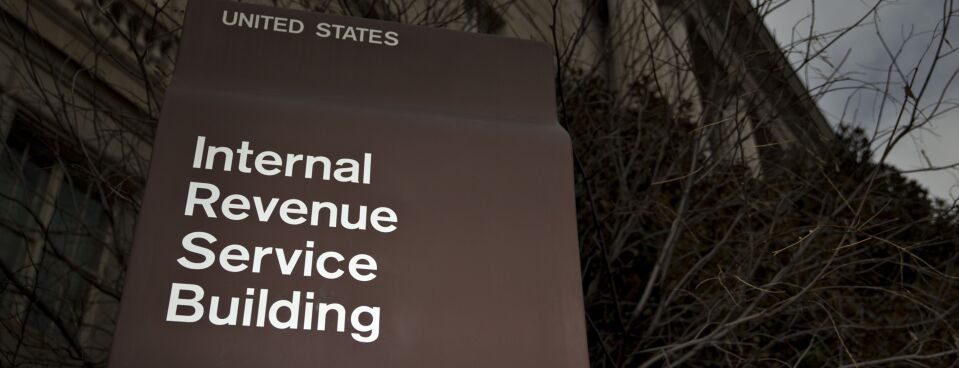
Presented below is our summary of significant Internal Revenue Service (IRS) guidance and relevant tax matters for the week of May 4 – May 8, 2020.
May 8, 2020 : The Large Business & International (LB&I) Division of the IRS released an update to the Practice Unit titled Official Versus Free Market Exchange Rate. The update covers determining the appropriate exchange rate used to translate foreign currency amounts. The unit supersedes the previously published Practice Unit with the same title published on December 20, 2016. It was updated to include Argentina as a hyperinflationary economy.
Quite a lot has been going on:
INSIGHT: Reverse Loophole Exploited by IRS Threatens Economic Revitalization

The IRS is taking advantage of a "reverse loophole" to deny a benefit to taxpayers intended by Congress. Jenny Johnson Ware of McDermott shows how the IRS is denying conservation easement deductions to taxpayers seeking to rehabilitate historic structures while following preservation rules and complying with local and fire and safety laws and the Americans with Disabilities Act.
The IRS attack on conservation easement deductions is a prime example of the most dangerous type of reverse loophole—one devised by IRS officials to stem abusive behavior by a subset of taxpayers, but applied indiscriminately.
Treasury's Stances on Virus Relief Draw Ire in Desperate Times

Narrow tax guidance on some parts of recently enacted coronavirus relief has sparked criticism that the IRS and Treasury aren't interpreting the law correctly.
Some of the IRS and Treasury interpretations don't align with what Congress intended and threaten to take pandemic relief out of the hands of those who need it the most, lawmakers have said in letters to officials.
The disconnect between Treasury and IRS and lawmakers highlights the challenge department officials often face with new laws—interpreting aspects that aren't 100% clear, while staying within the bounds of what they believe they're legally authorized to do.
HILL TAX BRIEFING: Treasury Take On Virus Relief Under Scrutiny

Treasury's reading of the recent coronavirus relief laws drew swift criticism from lawmakers who argue its narrow interpretation of several provisions could keep individuals from accessing the aid they need.
"When I was at Treasury and we were writing regulations, sometimes Congress would hammer us," said Tom West, a former Treasury official who now works as a...
Quite a lot has been going on:
INSIGHT: Proposed Tax-Exempt Entity Rules Bring Welcome Relief for Retirement Plan Investments

Proposed rules on on tax-exempt entity unrelated business taxable income bring some welcome relief to most retirement plan investments. Under the proposed rules, Meredith O'Leary of Eversheds Sutherland explains, tax-qualified retirement plans that are engaging in typical passive investment partnership activities won't be subject to separate reporting requirements created by the 2017 tax law.
On April 23, 2020, the Internal Revenue Service issued proposed rules clarifying how tax-exempt organizations, including tax-qualified retirement plans, are to report unrelated business taxable income (UBTI) under requirements put in place by the Tax Cuts and Jobs Act of 2017 (TCJA).
IRS Issues Proposed Regulations Under The Tax Cuts And Jobs Act (TCJA) That Provide Guidance to

IRS provides guidance on the deductibility and reporting of certain amounts paid to, or at the direction of, governments
May 12, 2020 - WASHINGTON — The Internal Revenue Service today issued proposed regulations under the Tax Cuts and Jobs Act (TCJA) that provide guidance to taxpayers and governments with respect to fines, penalties and certain other amounts.
The TCJA disallows a deduction for the payment of fines, penalties, and certain other amounts. Specifically, taxpayers may not deduct amounts that, pursuant to court orders or settlement agreements, are paid to, or at the direction of, governments in relation to the violation of any law or the investigation or inquiry into the potential violation of any law.
How a Little-Known 2019 Law Can Affect Your Retirement Savings | Military.com

The Setting Every Community Up for Retirement Enhancement (SECURE) Act became law in December 2019, but will the most significant tax legislation since 2006 be a boom or bust for you in retirement?
The reality: probably neither. There are some exciting provisions within the law, some to frown at, and a whole lot of "the ball remains in your court."
Beyond the changes, my biggest takeaway from the new law is the not-so-subtle reminder that tax laws are written in sand, not stone. Today's truth may be tomorrow's fiction.
COVID-19 And Tax Effects On Real Estate

Kate Kraus, a partner at Allen Matkins, tells Tax Notes legal reporter Eric Yauch the unexpected tax results of recent coronavirus legislation on the real estate market.
* * *
Eric Yauch : Before we jump into some of the changes that affect real estate, I think a little background will be helpful to kind of set the stage for what we're going to talk about.
For decades, the IRS struggled with auditing partnerships, and that stems from the fact that partnerships, for the most part, aren't taxpayers. Partners pay the tax.
Happening on Twitter
Do you have to include income earned by washing money for Eastern mafia syndicates on your tax return? What if you… https://t.co/xOm1A4PvfT 20committee (from UBIQUE) Tue May 12 14:06:14 +0000 2020
If randomly selected as a winner, you must have an open Chime Spending Account. If you don't, you must open one wit… https://t.co/FZsk5FDP17 Chime (from San Francisco, CA) Mon May 11 16:00:11 +0000 2020
If your adjusted gross income was less than $100,000 on your most recent tax filing, follow this advice. The IRS we… https://t.co/LnAXQtIwxq zackwhittaker (from New York, NY) Mon May 11 18:20:10 +0000 2020
#IRS: Three new tax credits are available to many businesses hit by COVID-19. Learn more: https://t.co/jfkGMWtU52… https://t.co/LxP17sP8vO IRSsmallbiz (from United States) Mon May 11 16:01:35 +0000 2020
No comments:
Post a Comment